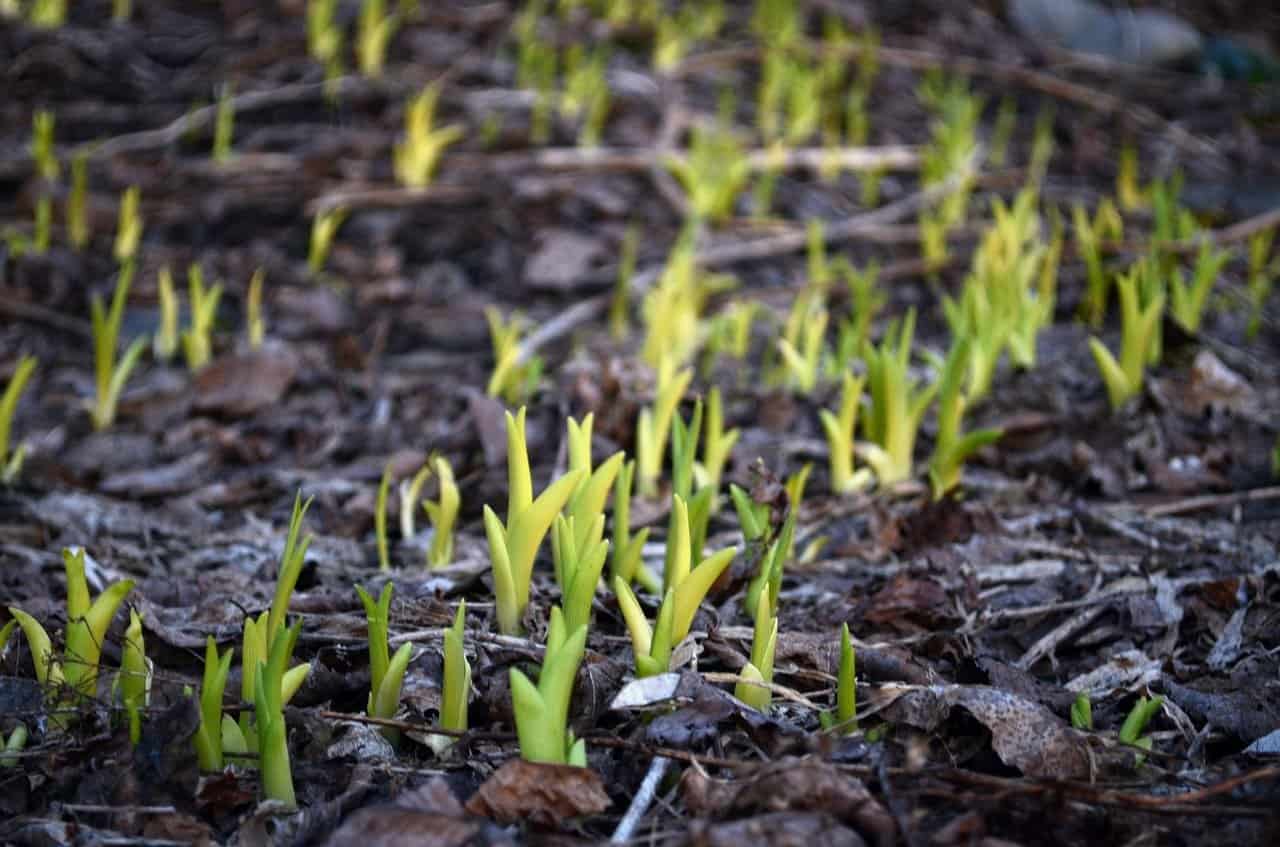With rising heat, the Earth begins to bloom,
The emerald hues a fervent sign of spring;
And every breath of air that’s taken in,
A sweet riposte to poisons we exhume.
But now these inhalations come too soon,
A portent of the harmful change they bring;
With rising heat, the Earth begins to bloom,
The emerald hues a fervent sign of spring.
Conventions that were safe to once assume,
Could not predict this deficit or swing;
This hasty life contains an arid sting,
Which seals autumnal growth within its tomb.
With rising heat, the Earth begins to bloom.

This is a Rondel, inspired by recent research which has found that in the Northern Hemisphere, warmer springs (brought about by climate change) are leading to less plant growth in the summer.
Previous studies have shown how year-on-year climate change has resulted in rising temperatures that have led to springtime plant growth beginning earlier. ome of these studies also reported on how this process has potentially helped to slow down climate change, by creating more biomass production and allowing a larger amount of carbon to be absorbed from the atmosphere via photosynthesis. However, new research has shown that in many regions across the globe warmer springs result in lower productivity in summer and autumn, and with it a net deficit in yearly plant growth and a reduced slowing of climate change.
By analysing satellite data over the past 30 years, the researchers in this study have shown that whilst increasing temperatures have resulted in a greener spring for many areas in the northern hemisphere, these same conditions can also lead to reduced plant growth in the summer and autumn, thereby resulting in an overall yearly deficit in plant growth and a reduced mitigation of climate change. This deficit in plant growth may in part be caused by the larger springtime growth leading to an increased demand for water which in turn decreases soil moisture content and results in insufficient water being available to plants later in the year. This deficit in plant growth and the dampening of climate change that it represents means that the world’s climate is in likely in an even more critical state than previously thought.
Discover more from The Poetry of Science
Subscribe to get the latest posts sent to your email.